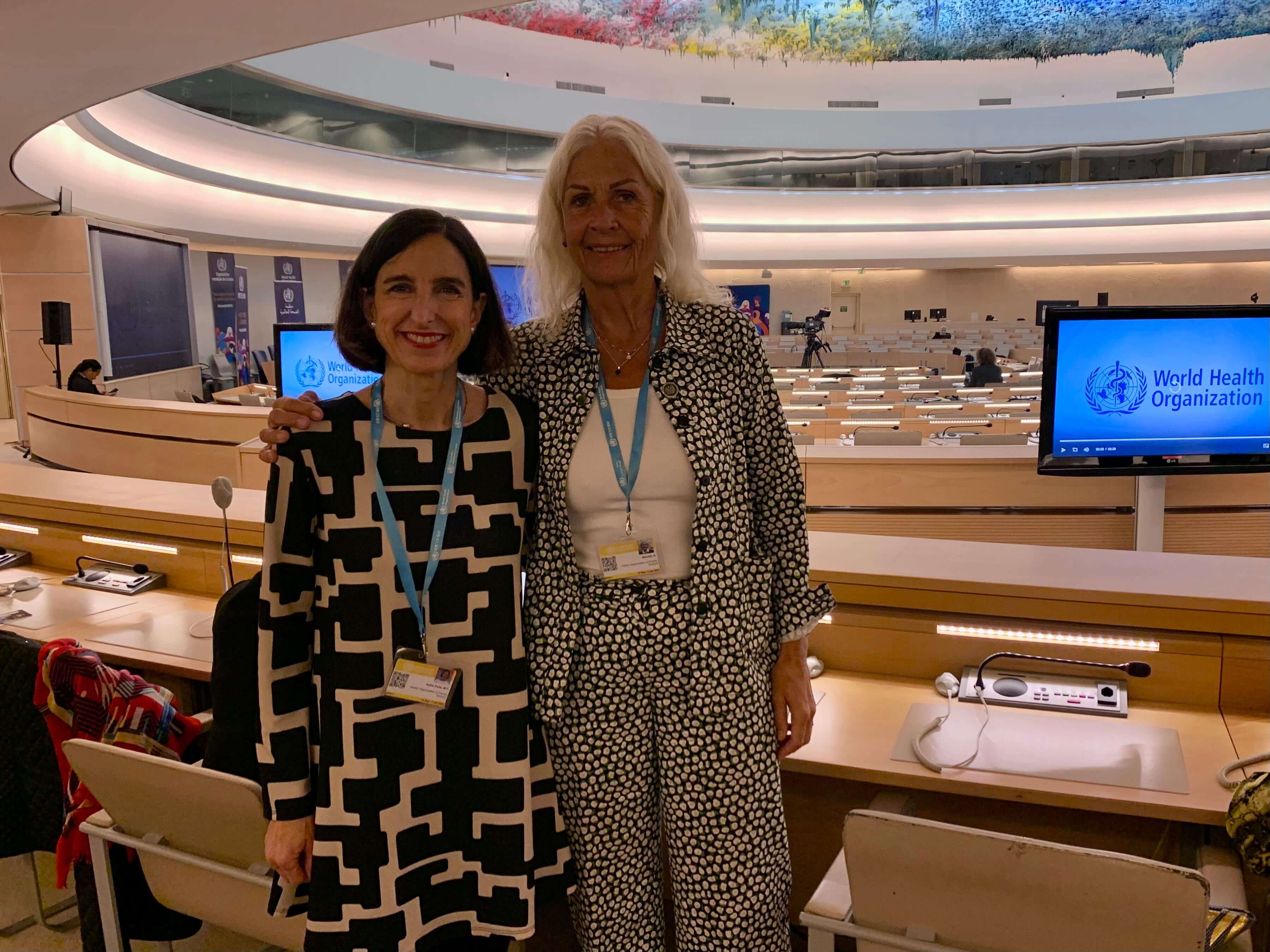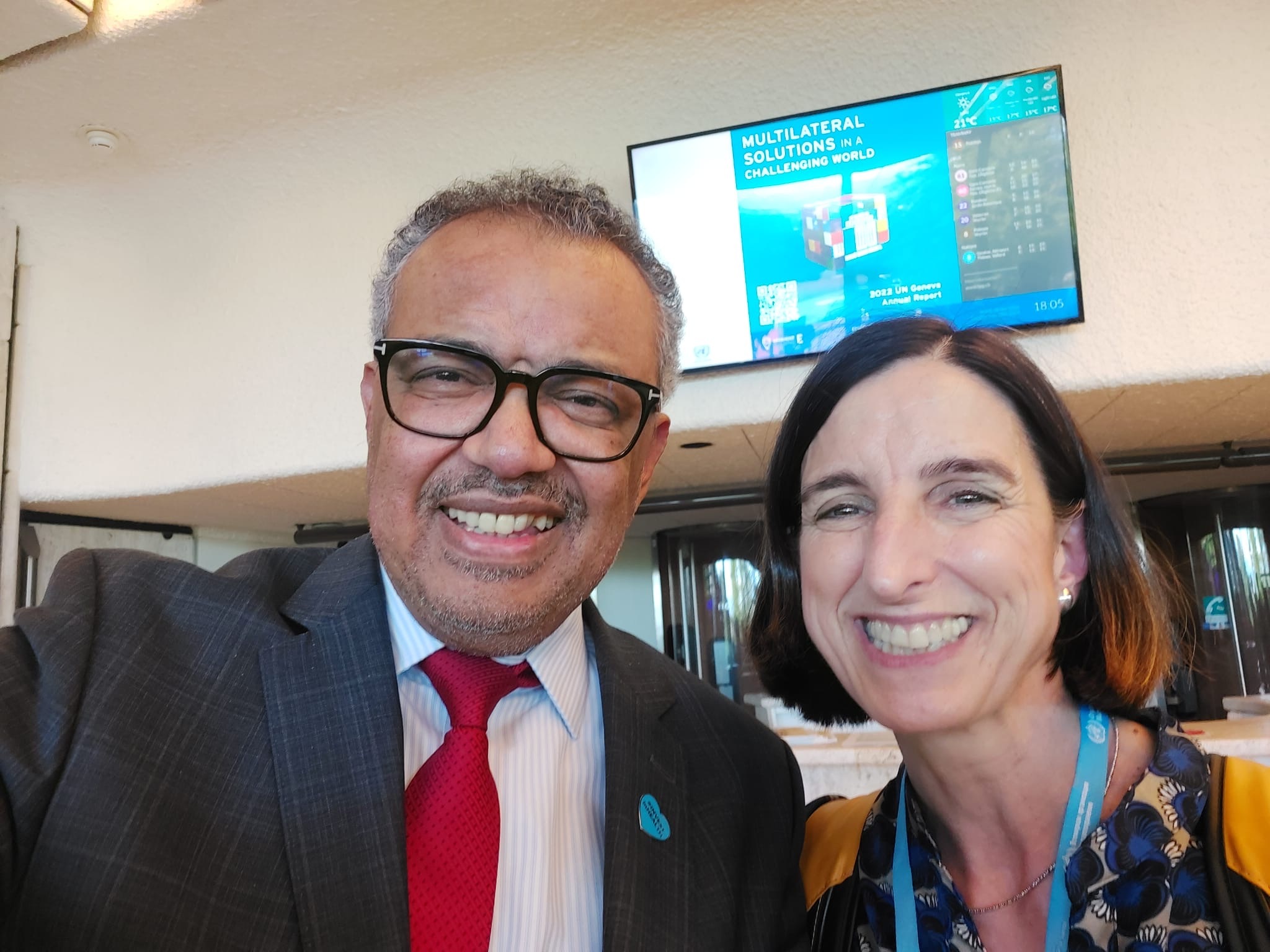At the WHA, Family Doctors Emphasize Global Health Priorities
 WHA Report for Website
WHA Report for Website

Geneva — A Week for Global Health
This past week at the World Health Organization headquarters in Geneva the atmosphere was electric as health leaders from around the world gathered for the 77th World Health Assembly. Among the participants the delegation from WONCA including Anna Stavdal, Maria Pilar Astier Pena, and Harris Lygidakis engaged in key discussions on enhancing primary health care, integrating multi-professional teams, managing non-communicable diseases, and addressing the urgent threats posed by climate change. Concurrently WONCA has finalized its WHO triennial collaborative plan and is considering new projects with WHO for the 2025-2027 period aiming to continue and expand its influence in global health initiatives.
During the Assembly WONCA engaged with WHO's Workforce Department on the Core Values Project, an initiative aimed at defining the global role of family medicine. This engagement highlights WONCA's commitment to facilitating a unified approach to health care that can be adapted by regions worldwide.
WONCA’s collaboration with WHO on refining clinical algorithms using the International Classification of Primary Care version 3 (ICPC-3) is critical for enhancing global health responses and underscores the importance of this classification.
Digital transformation themes continued with discussions about the evolution of the ICOPE training program. The shift towards digital platforms is aimed at enhancing accessibility and effectiveness in geriatric care training representing a forward-thinking approach to global health education.
A highlight of the assembly was the side event "Accelerating Primary Health Care Transformation with Evidence." This session brought together a diverse group of health leaders including the Regional Directors of the Americas, the Eastern Mediterranean Region, and Europe as well as the Ministers of Health from Spain and Uruguay. They discussed evidence-based strategies to enhance PHC systems. The discussion underscored the critical role of family doctors in driving these reforms showcasing their essential position at the intersection of clinical care and public health advocacy. Read the full report on this transformative event here.
Additionally WONCA met with key non-state actors such as the International Federation of Medical Students Associations (IFMSA), the World Federation for Medical Education (WFME), the Partnership for Maternal Newborn & Child Health (PMNCH), and the World Federation of Public Health Associations (WFPHA) to explore synergies and collaborative opportunities.
Tackling Non-Communicable Diseases Head-On
The Assembly underscored the urgent need to address non-communicable diseases—a leading cause of mortality worldwide. Building on the foundation laid by the NCD statement published in October 2023 during the Meeting of the Council in Sydney, WONCA highlighted the pivotal role of PHC in managing these health crises. The new statement advocated for an integrated care model that emphasizes preventive care and robust community partnerships.
A Strong Voice on Climate Change
A notable moment at the assembly was the presentation of a jointly developed statement on climate change urging health systems worldwide to adopt practices resilient to environmental challenges. This statement connects the dots between climate change and its direct impacts on public health calling for immediate action.
Looking Ahead
As WONCA continues to influence global health policies its role at WHA77 has solidified its reputation as a leader in shaping the future of family medicine. With a call to its members and partners to engage actively WONCA is poised to continue its advocacy for family medicine ensuring it remains integral to the global health dialogue.
Watch Prof Maria Pilar Astier Peña reading WONCA's statement on NCDs
Photos